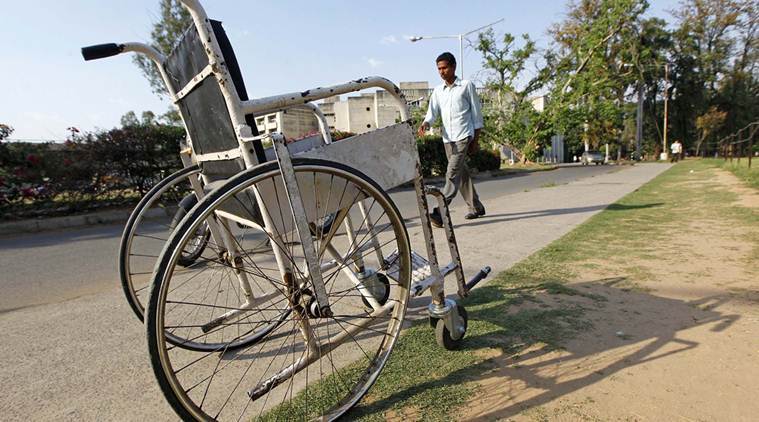 “We request CM Uddhav Thackeray to notify the Rules of Rights of Persons with Disability Act 2016 and implement all provisions of the Act in Maharashtra,” Bijur added. (Representational)
“We request CM Uddhav Thackeray to notify the Rules of Rights of Persons with Disability Act 2016 and implement all provisions of the Act in Maharashtra,” Bijur added. (Representational)
Three years after the Rights of Persons with Disability (RPwD) Act 2016 came into operation, the state government is yet to notify the rules for implementation of the Act in Maharashtra. For any Act to be fully operative, the central and state governments have to notify the Rules of the Act.
“Central government notified the rules soon after it was passed by Parliament and the RPWD Act came into operation in April 2017. The Act stipulates that all state governments must notify rules within six months from the date of commencement of this Act. The Maharashtra government should have notified the rules by October 2017 but they have still not been notified. Over 20 states in the country have done it,” said Cdr Shrirang Bijur, president of Parivaar — a national confederation of parents organisations.
“We request CM Uddhav Thackeray to notify the Rules of Rights of Persons with Disability Act 2016 and implement all provisions of the Act in Maharashtra,” he added.
In April 2017, responding to a writ petition (Justice Sunanda Bhandare Foundation vs Union of India), the Supreme Court had ordered that “the states and the Union Territories must realize that under the 2016 Act (RPwD) their responsibilities have grown. When the law is so concerned for the disabled persons and makes provision, it is the obligation of the law executing authorities to give effect to the same in quite promptitude.” While the state formulated draft rules in support of the Act and invited suggestions from citizens by May 23, 2017, an approval from the cabinet committee has been pending.
RPwD Act notified 21 forms of disabilities compared to seven in the Persons with Disability (PwD) Act 1995. The Act incorporates measures for empowerment of persons with disabilities (PwDs) such as promoting inclusive education of specially-abled children by which children with disability do not face any discrimination, introducing schemes to facilitate higher education in students with disability in every stream, creating skill building courses based on industry driven curricula and pedagogy to support self-employment and announce job reservation for specially abled that would be applicable in employment guarantee schemes operated by the state.
According to census 2011, Maharashtra has 11 per cent of the total disabled in the country. As per July-December 2018 report on “survey of persons with disabilities” by the National Statistical Office, the prevalence of disability was 2.2 per cent of the total population.
Several stakeholders in the state have pointed out that they continue to suffer due to absence of rules. A Mumbai-based non-profit organisation supporting children with multiple-disabilities, which applied for renewal of its social welfare licence six months ago, has been forced to run from pillar to post to ask for status of their application.
“We need the licence, so that we can help those children associated with us to avail existing government welfare schemes. We are tired of connecting with people in the department, but we do not receive answers,” said the founder, on condition of anonymity. Under the RPwD Act, states are mandated to dispose of such applications within 3 months of receipt.
“There are many parents in our organisation who have been trying to seek employment for their children — either due to financial constraints or to keep them engaged in productive work. Hospitality industry is one of the feasible sectors for such persons to find employment and there are examples of how disabled persons perform well in such areas. If reservation is applied by the state, it will go a long way in benefitting children,” said Geeta Sehjpal, vice-chairperson, Parents of Downs Syndrome.
Families from slum communities who look after disabled persons suffer the most, said Madhura Nagchoudhuri, chairperson, Centre for Disability Studies and Action at Tata Institute of Social Sciences.
“There is no question that people are losing out. Rules provide opportunity to have a quota in place for education, employment and access to resources. It makes government bodies accountable. For availing schemes, documents are required. However, many people with disabilities even today do not have an Aadhar card — those who are bed-ridden, or do not have limbs cannot give biometrics.”
Despite many calls and messages to State Disability Commissioner Prerna Deshbratar, she was unavailable for comment.